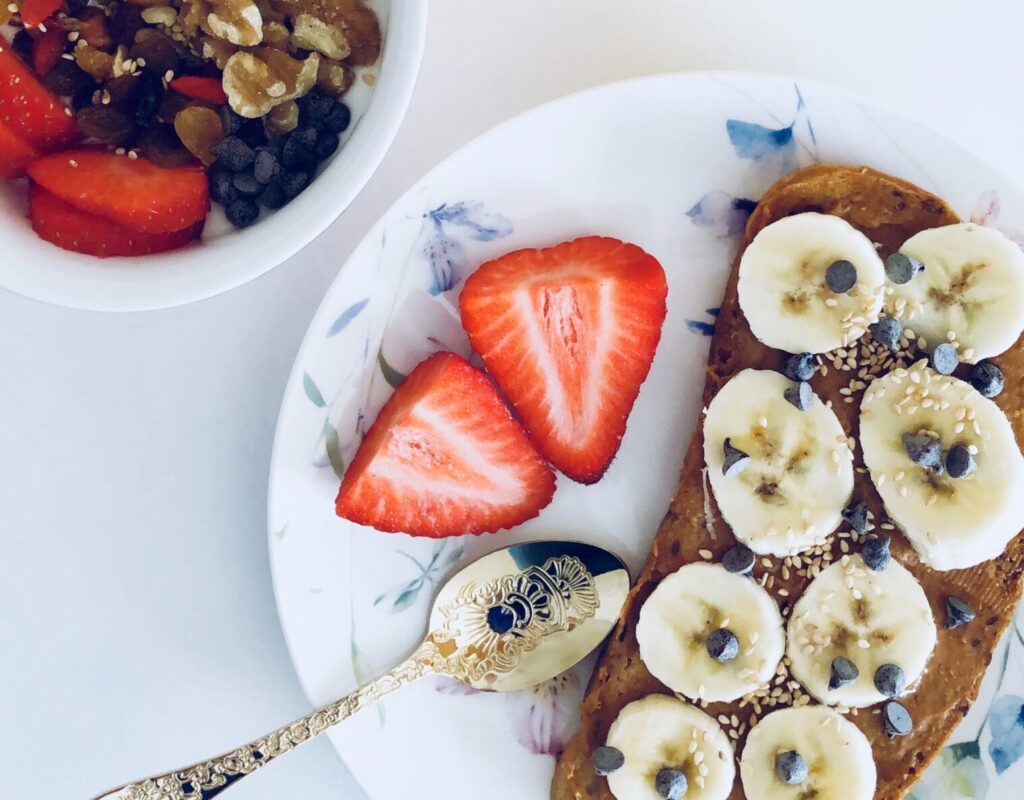10 Habits That Will Heal Your Gut

- 10 Habits That Will Heal Your Gut
- Introduction
- The Importance of Gut Health
- Top 10 Habits for Gut Healing
- Habit 1: Eat a diverse, fibre-rich diet
- Habit 2: Incorporate probiotics and prebiotics
- Habit 3: Limit processed foods and sugar
- Habit 4: Stay hydrated
- Habit 5: Manage stress
- Habit 6: Get enough sleep
- Habit 7: Exercise regularly
- Habit 8: Avoid smoking and excessive alcohol consumption
- Habit 9: Take digestive enzymes if needed
- Habit 10: Listen to your body
- Suggested Supplements for Gut Health
- Conclusion
- FAQs
Introduction
Gut health is a critical aspect of our overall health and well-being. The state of your gut can directly influence your immune system, digestion, and even your mental health. By adopting specific habits, you can support a balanced gut microbiome and unlock a myriad of health benefits. In this article, we will explore 10 essential habits to heal your gut and the science behind them.
The Importance of Gut Health
Role in digestion
Our gut is responsible for breaking down and absorbing the nutrients from the food we consume. A healthy gut can efficiently process the food we eat, ensuring that we receive the necessary nutrients to fuel our bodies.
Immune system support
The gut is home to a large portion of our immune cells, which protect us from harmful pathogens. A well-balanced gut microbiome contributes to a robust immune system and helps us ward off infections and diseases.
Mental well-being
Research has shown a strong connection between gut health and mental health, often referred to as the gut-brain axis. A healthy gut can positively impact our mood, cognitive function, and stress response.
Top 10 Habits for Gut Healing
Habit 1: Eat a diverse, fibre-rich diet
Consuming a varied diet rich in fibre from different sources ensures that you’re providing your gut bacteria with a wide range of nutrients necessary for their growth and activity. These sources include fruits, vegetables, whole grains, nuts, seeds, and legumes. By increasing your fibre intake, you’ll promote regular bowel movements, prevent constipation, and reduce inflammation in your gut.
Habit 2: Incorporate probiotics and prebiotics
Integrating both probiotics and prebiotics into your diet is crucial for a healthy gut. Probiotics, found in fermented foods such as yoghurt, kefir, kombucha, kimchi, and miso, introduce beneficial bacteria into your digestive system. Prebiotics, on the other hand, are non-digestible fibres that act as food for these good bacteria. Foods rich in prebiotics include artichokes, asparagus, bananas, barley, chicory root, and leeks. Together, probiotics and prebiotics help maintain a balanced gut ecosystem.
Habit 3: Limit processed foods and sugar
Processed foods are often high in unhealthy fats, artificial additives, and refined sugars, which can negatively affect your gut health. Excessive sugar consumption can lead to an overgrowth of harmful bacteria and yeast, resulting in an imbalance in your gut microbiome. By focusing on whole, natural, and unprocessed foods, you’ll create a healthier environment for your gut bacteria to thrive.
Habit 4: Stay hydrated
Adequate water intake is crucial for maintaining proper digestion and facilitating the passage of waste through your intestines. It also helps maintain the mucosal lining of your intestines, which acts as a barrier against harmful substances and pathogens. Aim to drink at least eight 8-ounce glasses (2 litres) of water daily, but remember that individual needs may vary.
Habit 5: Manage stress
Long-term stress can have detrimental effects on your gut health. When you’re stressed, your body produces stress hormones like cortisol, which can alter your gut bacteria composition and increase inflammation. Implementing stress-reduction techniques such as mindfulness meditation, progressive muscle relaxation, deep breathing exercises, or spending time in nature can help alleviate stress and support your gut health.
Habit 6: Get enough sleep
Getting sufficient sleep is vital for overall health, including gut health. Sleep deprivation can negatively impact your gut microbiome, leading to imbalances and increased inflammation. Aim for 7-8 hours of quality sleep each night by establishing a regular sleep schedule, creating a relaxing bedtime routine, and making your sleep environment conducive to rest.
Habit 7: Exercise regularly
Regular physical activity has been shown to improve gut health by promoting the growth of beneficial bacteria and increasing blood flow to the digestive system. Exercise also helps reduce stress and inflammation, both of which can negatively affect gut health. Aim for at least 150 minutes of moderate-intensity aerobic activity or 75 minutes of vigorous-intensity aerobic activity per week, along with muscle-strengthening activities on two or more days per week.
Habit 8: Avoid smoking and excessive alcohol consumption
Both smoking and excessive alcohol consumption can damage your intestinal lining, disrupt your gut microbiome, and increase your risk of developing gut-related health issues. Quitting smoking and limiting alcohol intake can greatly improve your gut health and overall well-being.
Habit 9: Take digestive enzymes if needed
Digestive enzymes, such as amylase, protease, and lipase, help break down carbohydrates, proteins, and fats in your food, making
it easier for your body to absorb nutrients. Some individuals may have a deficiency in these enzymes, leading to digestive issues like bloating, gas, and indigestion. Consult your healthcare provider to determine if supplementing with digestive enzymes could be beneficial for your gut health.
Habit 10: Listen to your body
Each person’s gut is unique, and what works for one person may not be suitable for another. Pay attention to how your body reacts to different foods, drinks, and lifestyle habits. Keeping a food diary can help you identify potential triggers for digestive issues and guide you in making adjustments to support your gut health. Remember, it’s essential to consult your healthcare provider for personalised advice and guidance on your gut health journey.
By incorporating these 10 habits into your daily routine, you’ll be well on your way to healing your gut and improving your overall health and well-being. Remember that gut healing is a gradual process, and consistency is key. Be patient and give your body the time and support it needs to restore balance and thrive.
Suggested Supplements for Gut Health
Probiotics
Probiotic supplements can help support a healthy gut microbiome by introducing live beneficial bacteria into your digestive system. These bacteria can assist in digestion, produce essential vitamins, and help maintain a balanced gut ecosystem. When choosing a probiotic supplement, look for one with multiple strains of bacteria and a high colony-forming unit (CFU) count. It’s also essential to store probiotics as directed, as they are sensitive to heat and moisture. Consult your healthcare provider for personalised advice on which probiotic supplement is best for you.
L-Glutamine
L-glutamine is an amino acid that plays a vital role in gut health by supporting the repair and maintenance of the intestinal lining. It helps to strengthen the gut barrier, preventing harmful substances and pathogens from entering the bloodstream. This amino acid also helps reduce inflammation and may alleviate symptoms of gut-related disorders such as leaky gut syndrome and inflammatory bowel disease. L-glutamine can be found in supplement form, and it’s essential to follow the recommended dosage and consult your healthcare provider before starting any new supplement.
Digestive enzymes
Digestive enzyme supplements contain a combination of enzymes that aid in the breakdown of carbohydrates, proteins, and fats in your food. These supplements can be particularly helpful for individuals with enzyme deficiencies or those experiencing digestive issues such as bloating, gas, and indigestion. Commonly included enzymes are amylase, protease, lipase, lactase, and cellulase. Before taking a digestive enzyme supplement, consult your healthcare provider to determine if they are appropriate for your specific needs and follow the recommended dosage instructions.
Omega-3 fatty acids
Omega-3 fatty acids, primarily found in fish oil supplements, are essential fats that play a crucial role in maintaining gut health. They have powerful anti-inflammatory properties, which can help reduce inflammation in the gut and promote overall gut health. Studies have shown that omega-3 fatty acids can improve the composition of the gut microbiome and may be beneficial for individuals with gut-related disorders such as inflammatory bowel disease. To ensure you’re getting a high-quality omega-3 supplement, choose one that has been third-party tested for purity and potency, and consult your healthcare provider for personalised advice on dosage and duration.
By incorporating these supplements into your routine, you can further support your gut health journey and enhance the benefits of the healthy habits outlined in this article. Keep in mind that supplements should be used in conjunction with a balanced diet and healthy lifestyle, and it’s crucial to consult your healthcare provider before starting any new supplement regimen.
Conclusion
Healing your gut is a journey that requires consistent effort and dedication to the habits outlined in this article. By focusing on a diverse, fibre-rich diet, staying hydrated, managing stress, and incorporating beneficial supplements, you can cultivate a balanced gut microbiome that supports optimal health and well-being. Remember to listen to your body and consult your healthcare provider for guidance on your gut health journey.



